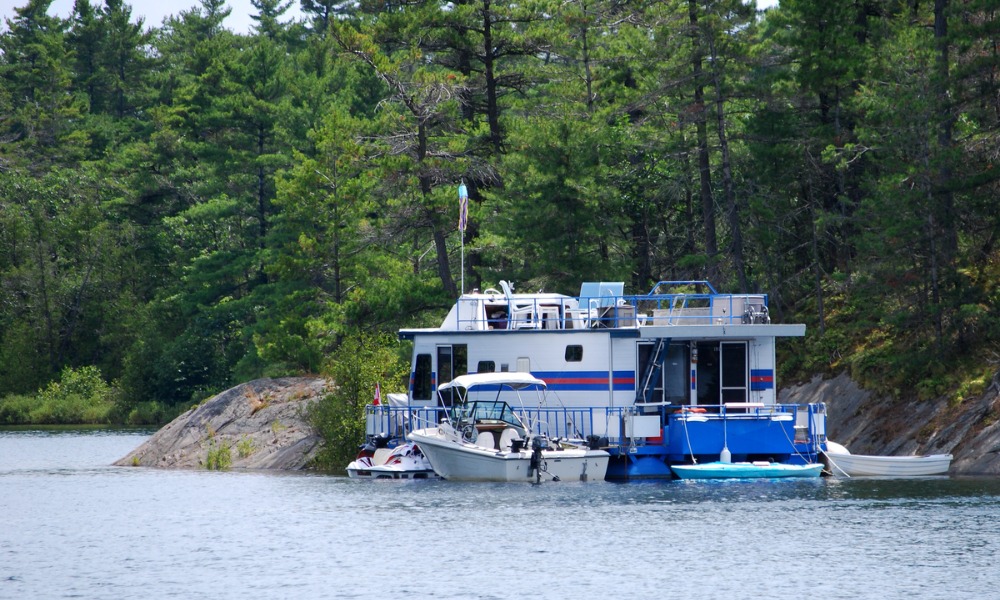
A man allegedly fell into the water while disembarking from a houseboat

The Ontario Superior Court of Justice has allowed a third-party claim against the chartering individual in a houseboat accident that resulted in injuries.
In Czarneski v. Floating Lodges of Sioux Narrows Inc. et al., 2023 ONSC 4285, Jeremy Czarneski and his family were vacationing as guests on a houseboat owned by Floating Lodges of Sioux Narrows Inc. While disembarking the houseboat via a wooden gangplank, the plank broke, and Jeremy Czarneski fell into the water. He sustained injuries to his knee and foot because of the accident. He returned home to the United States, where he underwent surgery.
He used a wheelchair, crutches, and a cane before he could walk unaided. He undertook physiotherapy and was off work for over three months at his family’s construction company.
Jeremy sued Floating Lodges for damages arising from his injury. The parties eventually agreed to settle for $175,000.
During the litigation, Floating Lodges issued a third-party claim against Eric Schwartz, who chartered the houseboat at the time of the accident. Based on the charter contract, Floating Lodges sought contribution and indemnity to the extent of Jeremy Czarneski’s injuries. Schwartz was personally served at his American residence.
Floating Lodges claimed that Schwartz, as the chartering individual, was in full possession and control of the vessel, and received a safety briefing from the defendant that included procedures for boarding and re-boarding the houseboat and operation of all safety equipment.
Jeremy Czarneski testified that at the time of the injury, the gang planks were improperly placed against the side of the houseboat at a much higher angle than intended, leading to the breakage of one plank and Czarneski falling into the water from a greater height. Czarnecki claimed that Schwartz did not give them a safety briefing about the vessel.
Consequently, Floating Lodges alleged, through its third-party claim, that Schwartz was negligent in monitoring his passengers, inspecting the wooden gangplank, advising the passengers about alternate means of accessing the houseboat and failing to dock it safely.
Schwartz took no step to defend the third-party claim, and accordingly, the court noted him in default. Under the Rules of Civil Procedure, a defendant who has been noted in default is deemed to admit the truth of all allegations of fact made in the statement of claim. The court acknowledged that the scope of this rule may include third-party claims. However, the facts must entitle the moving party to a default judgment.
The Ontario Superior Court of Justice found that Czarneski’s examinations for discovery establish a basis for a negligence claim against Schwartz, and the charter boat agreement shows that he agreed to indemnify the defendant against any claims made.
The court noted that Czarneski was 40 years old at the time of the injury. He was a landscape and construction contractor. He experienced changes in his life due to his knee injury, including being limited to more sedentary work and losing a competitive advantage in the workforce. His family also described disruptions to their relationship that prompted them to seek counselling.
The court was satisfied that the amount claimed, $175,000, represents a reasonable assessment of the damages when general and special damages and the Family Law Act claims for loss of care, guidance, and companionship of family members are considered.
Accordingly, the court issued a judgment against the third-party Eric Schwartz for $175,000 and costs fixed at $10,000.